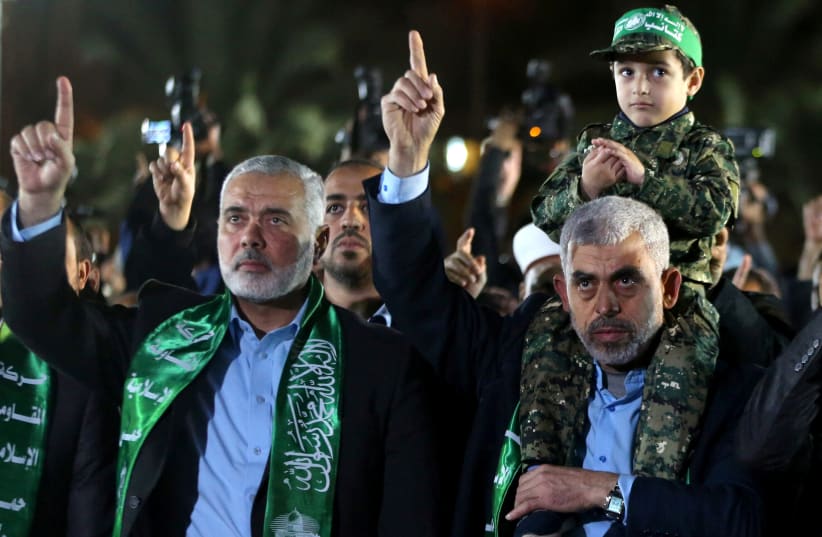On the question of whether the current tentative ceasefire will persist, Abu Zaida said, “Hamas is willing, as is the Palestinian Authority and its citizens. If the price is opening the Kerem Shalom crossing and expanding the fishing range, and a few exemptions on the Erez crossing, it won’t last. A long term ceasefire can last years if the conditions in Gaza improve drastically.”
Commenting on Israeli soldiers Hadar Goldin and Oron Shaul, whose bodies are being kept hostage by Hamas, Abu Zaida said, “Nobody in the Israeli military or political systems can know whether Hamas will choose to give you charity and return the soldiers or bodies or whatever they have.”Abu Zaida added, “As a Palestinian, we are at a war. There is a war, soldiers are captured, their situation is unknown, and then there is a prisoner exchange. Rabin did it; so did [Ariel] Sharon; so did Netanyahu."A Related Video You May Like:
“It is a matter of Cabinet decision,” emphasized Abu Zaida, “It is a matter of the price. You should know, and the Israeli public should be prepared, that in order to return the soldiers a price must be paid. There are no free prisoner exchanges. Hamas wouldn’t do it even if Gaza thrives. [Yahya] Sinwar, the head of the Hamas who was released in the [Gilad] Shalit [prisoner exchange] deal cannot permit himself to give the soldiers for some hudnah [ceasefire] or another. He would rather receive a missile to the head than allow that to happen.”“No one is giving money to Hamas. No one,” stressed Abu Zaida. “Half a billion dollars were invested in the Gazan infrastructures, not in Hamas. All of it was lost in Operation Protective Edge.”“Gaza was promised five billion dollars,” continued Abu Zaida, “and half a billion were transferred. The money for the [terror] tunnels comes from other sources, not from donations. Ask the Shin Bet. We want a long-term calm and the foundations of Gaza need to change. People wait four, five days to reach Rafah when returning from Egypt.”On the possibility of Gazan leadership passing over to Abu Mazen, Palestinian Authority leader Mahmoud Abbas, Abu Zaida said, “Abu Mazen’s approach is that he wants reconciliation and to rule Gaza completely. A Palestinian reconciliation is in the Palestinians’ interests, ahead of any peace with Israel. From a national perspective, this is right. It is also good for Israel, if it wants calm. The Palestinians’ problem is that they cannot solve their own problems, and Israel is abusing this in an incredible manner.""I only criticize the Palestinians," continued Abu Zaida. "I don’t care for the Hamas, but for the two million Palestinians. They need to get rid of Hamas. But how? Only through the ballots, through elections. That is what we are trying to do. Everyone is scared of elections. It’s not good and not democratic.”Translated by Hadas Labrisch
